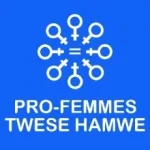CLADHO (Collectif des Ligues et Associations de Défense des Droits de l’Homme au Rwanda) is the umbrella of Human Rights organizations in Rwanda, active in the area of human rights promotion, economic governance, right to socio protection, right to education and citizen participation. It was founded in May 1993 with the mission to protect, defend and promote human rights.
Website: https://www.cladho.org.rw


Joint Terms of Reference for Assessing Progress in Fiscal, Non-Fiscal, and Financial Decentralization within the health sector in Rwanda
Project Title: INDI NTAMBWE MU KWIYUBAKIRA IGIHUGU (INKI)
Consultancy Title: Assess progress in Fiscal, non-Fiscal and Financial Decentralization within the health sector in Rwanda.
Client Organizations:
- Collectif des Ligues et Associations de Défense des Droits de l’Homme au Rwanda (CLADHO)
- Health Development Initiative (HDI)
Consultancy start date: December 15th 2024
Consultancy End date: February 15th 2025
About CLADHO and HDI
Collectif des Ligues et Associations de Défense des Droits de l’Homme au Rwanda (CLADHO)is an umbrellaof Human Rights organizations in Rwanda founded in 1993 with a mission to protect, defend and promote human rights. It is active in the areas of Human rights promotion, economic governance, right to social protection, right to education and citizen participation. Through the INKI project, CLADHO aims to assess progress made in the implementation of the Fiscal and Financial Decentralization policy in the health sector in Rwanda.
HDI is an organization committed to advancing equitable access to healthcare, with a particular emphasis on sexual and reproductive health and rights (SRHR). Renowned for its advocacy efforts and significant impact within the health sector, HDI plays an active role in advocating for policies that improve healthcare access. To strengthen its influence in the decentralization of healthcare governance, HDI is focused on expanding its capacity to effectively monitor and advocate for decentralized health systems. Through the INKI project, HDI seeks to assess the progress of implementing both non-Fiscal and Financial Decentralization policy within the health sector in Rwanda.
Context and Background
CLADHO and HDI, along with other partners, implement a project dubbed “INKI”: Indi ntambwe mu Kwiyubakira Igihugu – An Extra Mile in State Building. The project, led by Norwegian People’s Aid (NPA) and funded by the Foreign Commonwealth Development Office (FCDO), supports the CSOs capacity to engage in understaning and measuring the quality and progress on sector decentralization in Rwanda. The overarching aim is to equip CSOs with robust tools to systematically track the quality and progress of decentralization, and subsequently advocate for decentralization reforms, thereby enhancing transparency, accountability, and governance across all levels.
Rwanda adopted the Decentralization Policy in May 2000 with the overarching objective of taking service delivery closer to the citizens. This was followed by fiscal and financial decentralization in 2002 aimed at ensuring that finance (resources) followed the decentralized functions. To date, commendable progress has been made following a number of related reforms and initiatives across different sectors which have contributed to impressive socio-economic achievements registered in the country. Rwanda has made notable progress in decentralizing governance and public administration to enhance service delivery, particularly in the health sector.
The health sector is a key focus of decentralization, as it is central to improving the well-being of the population. The success of decentralization in health depends on the alignment of financial, administrative, and governance systems at the national, district, and local levels. These reforms aim to increase local ownership, improve efficiency, and ensure equitable access to essential services, including health care.
The Cabinet meeting of 23rd August 2024 approved the second National Strategy for Transformation, NST2 (2024-2029) which aims to spearhead the country towards the achievement of the aspirations entailed in Vision 2050 particularly its mid-term targets of 2035.
This Terms of Reference consists of two Lots.
Lot 1 will be managed by CLADHO and will focus on assessing the progress made in the implementation of the fiscal and financial decentralization policy within Rwanda’s health sector.
Lot 2, led by HDI, will assess the progress in the implementation of the non-fiscal and financial decentralization policy within the health sector in Rwanda.
The evaluation will focus on the effectiveness of decentralization in improving health service delivery, the management of health resources, and local governance in health systems. Despite good progress made, adequate resource prioritization and effective delivery mechanisms of which fiscal and non-fiscal and financial decentralization is critical.
In light of this context, CLADHO and HDI, through a joint assessment funded by the UK’s Foreign, Commonwealth and Development Office (FCDO) and supported by Norwegian People’s Aid, are seeking qualified individual consultants to conduct a study. The objective of the study is to assess the progress made, identify challenges, and provide recommendations for strengthening fiscal, non-fiscal, and financial decentralization within Rwanda’s health sector.
Purpose of the assignment
The main purpose of this assessment is to evaluate the progress made by Rwanda in fiscal, non-fiscal, and financial decentralization within the health sector. Specifically, the assessment will:
- Assess how effectively decentralization policies and reforms have been implemented in the health sector.
- Identify strengths, gaps, and challenges in fiscal and non-fiscaland financial management at decentralized levels of the health system.
- Evaluate the impact of decentralization on health service delivery, access, and equity.
- Provide recommendations for improving fiscal, non-fiscal, and financial decentralization in the health sector to enhance healthcare outcomes.
Objective of the Assignment
The objective of this assignment is to assess progress made in the implementation of the fiscal, non-fiscal and financial decentralization policy in the Health Sector in Rwanda.
Specific Objectives for Lot 1
- Take stock of the functions devolved, deconcentrated and delegated in the health sector.
- To assess whether and how resources follow functions in the health sector.
Specific Objectives for Lot 2
- Strengthen the capacity of HDI to effectively monitor and report on the implementation of decentralization principles within the health sector.
- Facilitate the roll-out and piloting of the decentralization assessment framework developed under the INKI project, with a particular focus on health and fiscal decentralization.
- Support HDI in engaging with key stakeholders, including the ministry of health and local government authorities, to advocate for decentralization reforms that promote citizen-centric service delivery.
Methodology
The selected consultant shall propose his or her methodology in the inception report. However, a systematic, consultative and analytical delivery approach is encouraged. This will include key stakeholder consultations and review of relevant literature that includes the following documents;
- Decentralization Policy of 2021.
- Fiscal and Financial Decentralization Policy.
- Prime Minister’s Order on Sectoral Decentralization.
- Latest strategic plans for the following sectors.
- Governance and Decentralization Sector
- Health Sector
- Public Finance Management
- Fiscal Decentralization Reports.
- Organic law on functioning of public institutions.
- The consultant will take into consideration of the protocol developed by the INKI project for the roll out of the assessment.
- Other relevant documents.
- Conduct interviews with key stakeholders, including central and local government, development partners, and civil society organizations officials.
Scope of Work
The successful consultant will be expected to carry out the following duties, based on the lot they have selected.
Lot 1 under CLADHO focuses on evaluating the progress made in the implementation of the fiscal and financial decentralization policy within Rwanda’s health sector.
- Conduct detailed review of the Fiscal and Financial (F&F) Decentralization in the Health Sector in Rwanda highlighting health sector functions that have been decentralized versus those still centralized.
- Perform a SWOT analysis highlighting strengths and opportunities to build upon as well as weaknesses and threats that the sector should address to ensure effective service delivery.
- Provide actionable recommendations including health sector services that are still centralized but are suitable for decentralization.
- Roll out the assessment framework developed by the INKI project especially in the health sector with a focus on fiscal and financial decentralization.
- Present the findings and recommendations in the validation workshop of key stakeholders.
Lot 2 under HDI focuses on evaluating the progress made in the implementation of the non-fiscal and financial decentralization policy within Rwanda’s health sector.
- Support HDI in the pilot roll-out of the decentralization assessment framework within the health sector across five districts.
- Provide technical assistance in implementing the framework.
- Assist HDI in the documentation and analysis of the findings.
- Prepare recommendations based on pilot outcomes to inform future health decentralization reforms.
- Conduct consultations with the Ministry of Health and the Ministry of Local Government to identify health decentralization reform support needs and potential collaborative efforts with CSOs.
- Assist HDI in applying the methodological framework to monitor and assess health sector decentralization, focusing on policy compliance and service delivery standards.
Deliverables
In the execution of this assignment, the selected consultant will produce the following deliverables;
Inception Report:highlighting the consultant’s understanding of the assignment, and proposed methodology for delivering on the tasks and timelines. A detailed work plan outlining the approach, methodology, and timeline for the assessment, along with an outline of key data sources and stakeholders to be engaged.
Draft Report:A comprehensive draft report outlining the findings of the assessment, including an analysis of progress, challenges, and opportunities, as well as initial recommendations based on the data collected. This will also be informed by key stakeholder consultations and literature review.
Final Report that integrates key stakeholder comments/inputs including from the validation meeting.The final report should incorporate feedback from stakeholders, with clear, actionable recommendations for improving decentralization in the health sector based on the selected Lot. The final report should include:
- An executive summary providing a succinct overview of the assessment’s key findings and recommendations.
- Detailed analysis of the findings.
- Practical recommendations for policy and operational improvements.
- Suggested next steps for implementing recommendations.
Presentation:A presentation to key stakeholders, including the Ministry of Health, development partners, and local government representatives and other key actors, summarizing the key findings and recommendations.
Qualifications and Competencies of the Consultants
The selected consultant for each lot must possess the following qualifications and competencies;
Academic qualifications and competencies for Lot 1
- Masters in Economics, Finance, Business Administration, Development Studies or any other related field.
- Minimum of 7 years of experience in policy analysis, decentralization, public sector management, or CSO engagement in governance
- Proven knowledge of Decentralization and its implementation framework in Rwanda.
- Practical experience working with or collaborating with key institutions in Rwanda on decentralization matters, including the Ministry of Finance and Economic Planning, the Ministry of Local Government, sector ministries, and local districts, among others.
- Demonstrable knowledge of Fiscal and Financial Decentralization in Rwanda including knowledge of decentralized functions and resource allocations.
- Good analytical, communications and presentation skills.
- Should be fluent in English and Kinyarwanda.
Academic qualifications and competencies for Lot 2
- Advanced degree in Public Policy, Development Studies, Health Economics, or a related field.
- Minimum of 7 years of experience in policy analysis, decentralization, public sector management, or CSO engagement in governance.
- Demonstrated expertise in health sector decentralization, non-fiscal decentralization, and/or citizen engagement in policy processes.
- Strong report-writing, data analysis, and presentation skills.
- Familiarity with Rwanda’s decentralization policy, government structures, and civic space challenges.
- Should be fluent in English and Kinyarwanda.
Reporting and Supervision
Consultants for Lot 1 and Lot 2 will report to the project coordination teams at CLADHO and HDI, respectively, who will oversee and provide guidance throughout the study. Regular progress updates will be required, and the final deliverables will be subject to review and approval by the respective organizations.
Duration of the Consultancy
The assessment will be conducted over a period of 2 months and is expected to start on 15th December 2024 and be concluded by 15th February 2025.
Submission Instructions for Interested Consultants for Lot 1 and Lot 2
Interested consultants for Lot 1 and Lot 2 are required to submit the following documents by 10th December 2024, no later than 5:00 PM.
- Updated Detailed CV
- A technical proposal outlining the consultant’s understanding of the assignment, proposed methodology, and detailed timeline for its execution
- Financial Proposaldetailing the fee structure.
Hard copies of the required documents for Lot 1 should be submitted to CLADHO’s offices, located in Ziniya, Kicukiro district, KK 512, opposite the former headquarters of Contact FM, near the World Food Program head office. Electronic copies for Lot 2 should be sent to the following email address: info@hdirwanda.org; recruitment@hdirwanda.org.
Submissions for Lot 1 must be addressed to:
The Executive Secretary of CLADHO
P.O. Box 3060, Kigali.
Submissions for Lot 2 must be addressed to:
The Executive Director of HDI
NB: Only qualified applicants fulfilling the requirements will be contacted.
Done at Kigali on 4th December 2024
Dr. Emmanuel SAFARI
Executive Secretary of CLADHO
Tel: 0783597945
Dr. Aflodis KAGABA
Executive Director of HDI
Tel: 0788309262





